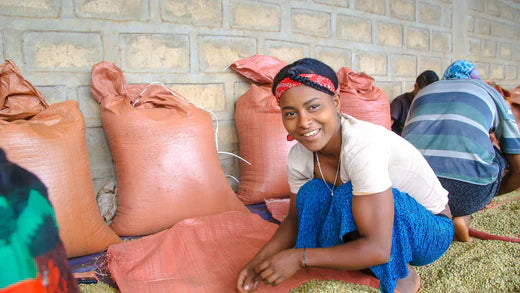It's the beginning of 2023 and many people are thinking about setting goals, developing a healthier routine, and kicking their bad habits. Coffee has often been maligned as an indulgence that people should limit or avoid altogether, but is that an informed recommendation and is this advisable?
Is coffee something you should be quitting or avoiding in the New Year?
Looking at the cost of a daily fancy coffee at a cafe, ordering a small cup of black coffee or switching to a home brewed coffee might be better options if you’re trying to be more budget-conscious in the new year.
But what about abstaining from coffee for health reasons? Is that a wise idea?
Obviously, we’re going to say absolutely not, but there’s more nuance to this opinion than that, so let us explain…
While it’s no surprise to us, it's perhaps a pleasant surprise to some who discover that coffee, it turns out, can be part of a healthy diet for the majority of people. However, being mindful of the quality and type of coffee you consume makes all the difference. Switching to a coffee crafted for health could be the easiest choice you make, especially if you have a daily habit of brewing it at home with an organic coffee subscription.
Looking at the majority of blog posts about ditching coffee they almost entirely point to the desire to stop consuming caffeine, which is, of course, the first thing that most people think of when it comes to coffee. However, coffee is much more than just caffeine, especially when it comes to health. Study after study indicates you are getting more from your favorite morning beverage than just wakefulness or an energy boost.
Coffee is a complex blend of hundreds of bioactive compounds, the amounts of which depend on its quality and how it is roasted. Caffeine is just one of those compounds. To make things even more complicated, scientists have discovered that the caffeine naturally occurring in the coffee works differently in combination with coffee’s “cocktail” of compounds, than caffeine from a laboratory (that is often the ingredient of energy drinks, soft drinks and supplements).
Now that we have addressed the main culprit in coffee from other blog posts, what actually are the health benefits of coffee?
Coffee is a powerful source of healthful antioxidants
In fact, Americans get more antioxidants from coffee than anything else - this includes superfoods like kale, dark chocolate, blueberries, and acai berries. Switching to a coffee that is chosen for its high antioxidant content and crafted to retain those compounds could be the easiest choice you make for your health this year. High antioxidant foods are dynamite for treating oxidative stress and chronic inflammation. Why would you want to give this up?
Coffee is shown to decrease the risk of some types of cancer
Liver cancer is the sixth most frequently diagnosed cancer in the world and one of the fastest growing cancer types in the United States. Studies published during the last decade in the journal Hepatology and Clinical Gastroenterology, and in the journal Hepatology, have documented that drinking two cups of regular coffee reduces the mortality from primary liver cancer by 40% and with three cups by up to 50%.
Coffee, especially darker roasted coffee, contains melanoidins which support our digestive health. Melanoidins modify gut microbial composition and activity, provide antioxidant capacity through release of phenolic compounds, and have an anti-inflammatory effect which can reduce the risk of colon cancer.
Coffee may decrease risk of developing Alzheimer’s or Parkinson’s Disease
Coffee may slow cognitive decline and reduce your chances of developing brain disorders such as Alzheimer’s or Parkinson’s disease. Studies have shown that one effective method of prevention can be found in a moderate coffee habit of 3–5 cups per day. There is evidence that both caffeine as well as coffee’s other compounds (such as polyphenols/CGAs) may play a part in improving cognitive function.
Coffee may lower your risk of type 2 diabetes
Coffee may help protect against type 2 diabetes, which is also a risk factor for liver cancer and other liver diseases. Over and over, studies have shown that drinking coffee can make a life-changing difference when it comes to diabetes risk. Coffee can also aid in reversing type 2 diabetes. The trigonelline & niacin in coffee help regulate liver enzymes and can serve to slow the progression of diabetes.
Coffee might help you live longer
Even one cup of coffee a day can help you live longer, according to a Japanese study on coffee and mortality. One cup of coffee per day has been shown to reduce risk of all cause mortality by 16%, and 2-3 cups per day have been shown to reduce the risk by as high as 19%!
Coffee benefits your skin
The compounds in coffee have many of the same restorative and protective qualities as those found in beauty products, especially the antioxidants. Polyphenols in coffee have also been shown to fight premature aging of the skin. You might imagine that not all coffees will provide the same amount of polyphenols all the time, but the only way to know is to select coffee tested for one of its most potent polyphenols, chlorogenic acid.
It’s exciting to think that coffee can be a source for these precious polyphenols, which can benefit our health on several levels, even the largest organ of the body, our skin.
Coffee can support your journey to better physical health
Coffee promotes endurance, can function as a pain reducer, and helps the body recover more quickly from strenuous exercise which are all important to peak athletic performance. Coffee can also help you achieve and maintain a healthy weight. Coffee has been shown to be a valuable tool in the fight against obesity, reducing fat storage through suppression of adipocyte functions and through support of the gut microbiota.
Coffee may decrease the risk of heart disease
Coffee can be an ally in protecting heart health. Being overweight is one of the main risk factors associated with high blood pressure and high cholesterol. Coffee can be beneficial for weight loss and it can help to prevent or mitigate cardiovascular problems thanks to the chlorogenic acids (CGAs) in coffee, antioxidant compounds with major anti-inflammatory power. CGAs strengthen endothelial cells, which are the tiny cells that make up the walls of our blood vessels.
However, there are certain people who should be mindful of their regular coffee intake due to the caffeine, such as those who have a family history of myocardial infarction (also known as heart failure) and high blood pressure.
What about decaf coffee?
Giving up caffeine for health reasons makes sense for some people, because caffeine affects every person differently. If getting better sleep is a resolution, try to figure out how quickly (or slowly) your body metabolizes caffeine, and stop drinking caffeinated beverages in order to give your body time to process it before bedtime. Some slow metabolizers of caffeine may actually want to give up coffee, if it stays in their bodies through bedtime.
All natural, Swiss Water Processed® (because it is 99.9% caffeine free), organic decaffeinated coffee could also be an option, though, as you can get the majority of the same health benefits as regular coffee.
The Bottom Line
Coffee is one of the healthiest drinks you can consume, but not just any coffee. To realize all of the benefits we highlight in this article, you should be drinking a specialty-grade (i.e. high standards), organic, high antioxidant, confirmed toxin-free, coffee that has been crafted to maximize health benefits to make sure you are setting yourself up for success.
You also want to avoid any sweeteners- especially the artificial ones. Sugar, chemicals, and even some dairy additions have been shown to reduce the effectiveness of coffee’s many bioactive compounds and negate its healthy effects.
We hope this article helped to shed some light on why coffee is so much more than just a delivery system for caffeine. When produced at a high standard, it is a powerful superfood that can provide a host of health benefits.
Cheers to your health and may your coffee cup runneth over in the new year!
1 comment








Fresh hot or cold brew with gras fed whole A2/A2 milk..doesn’t get better .. always looking forward to
Leave a comment